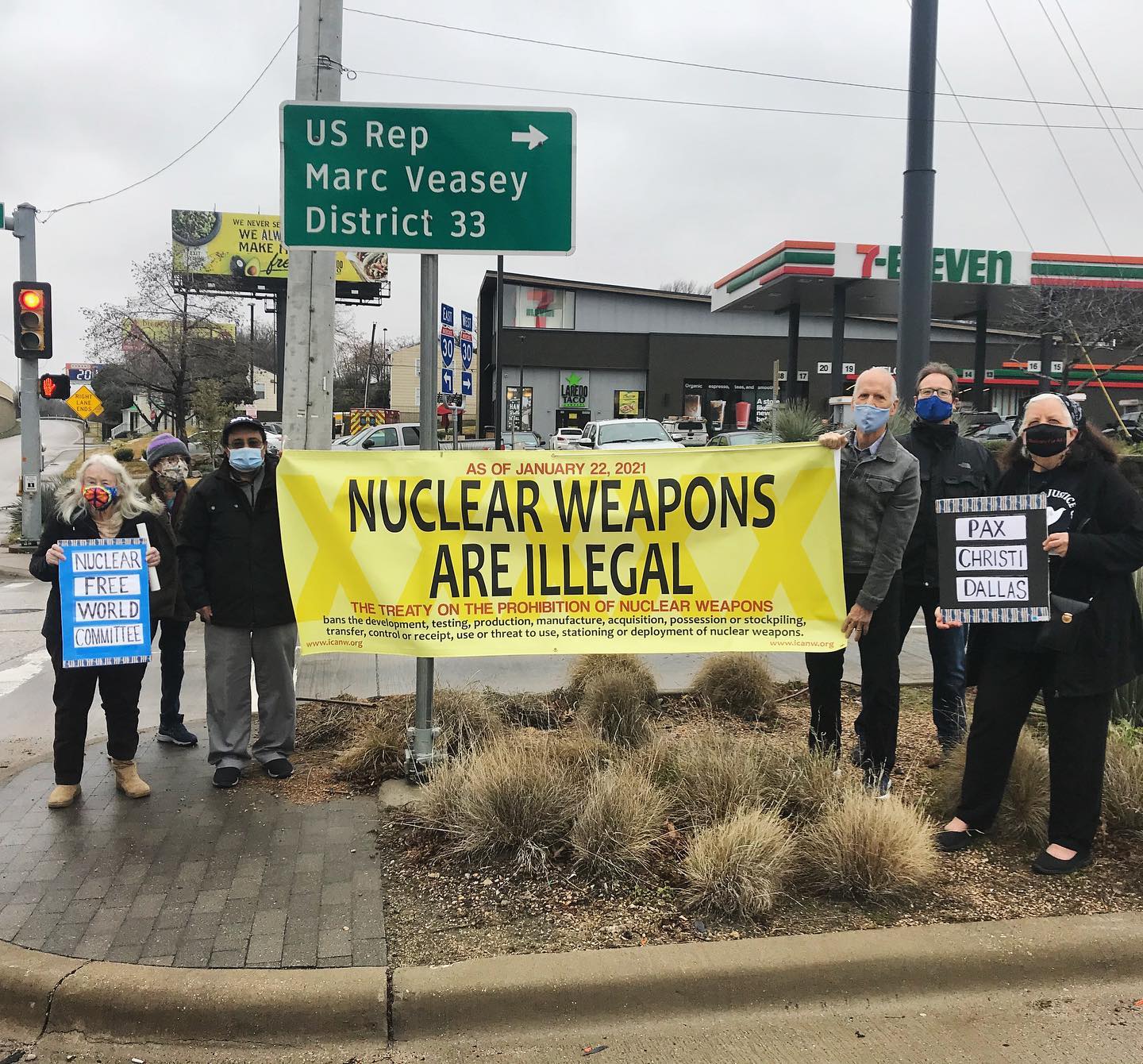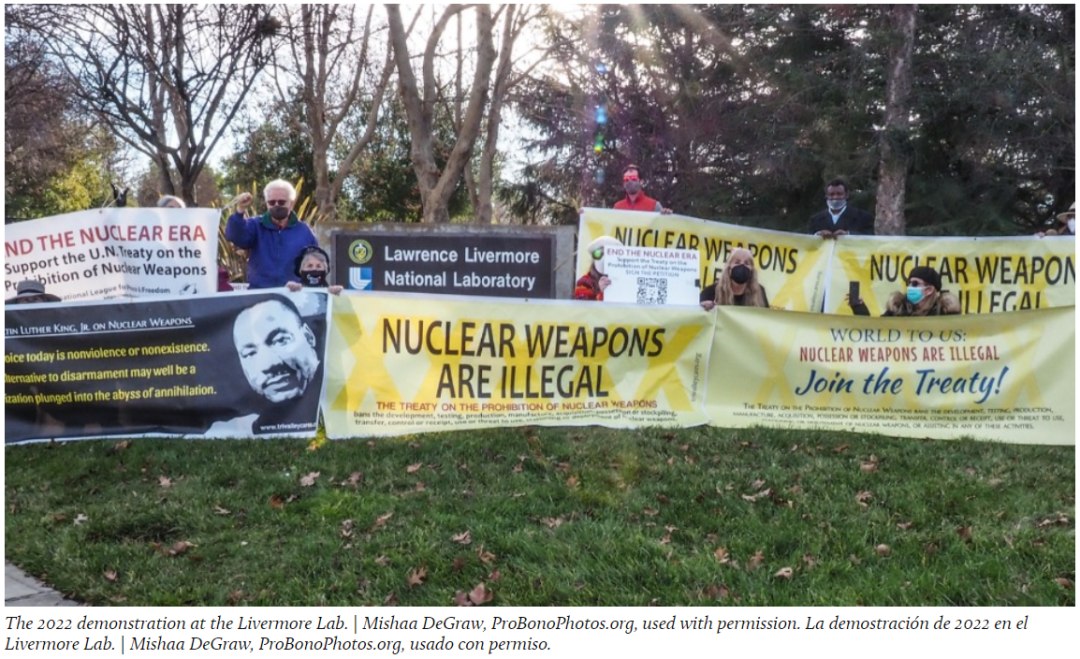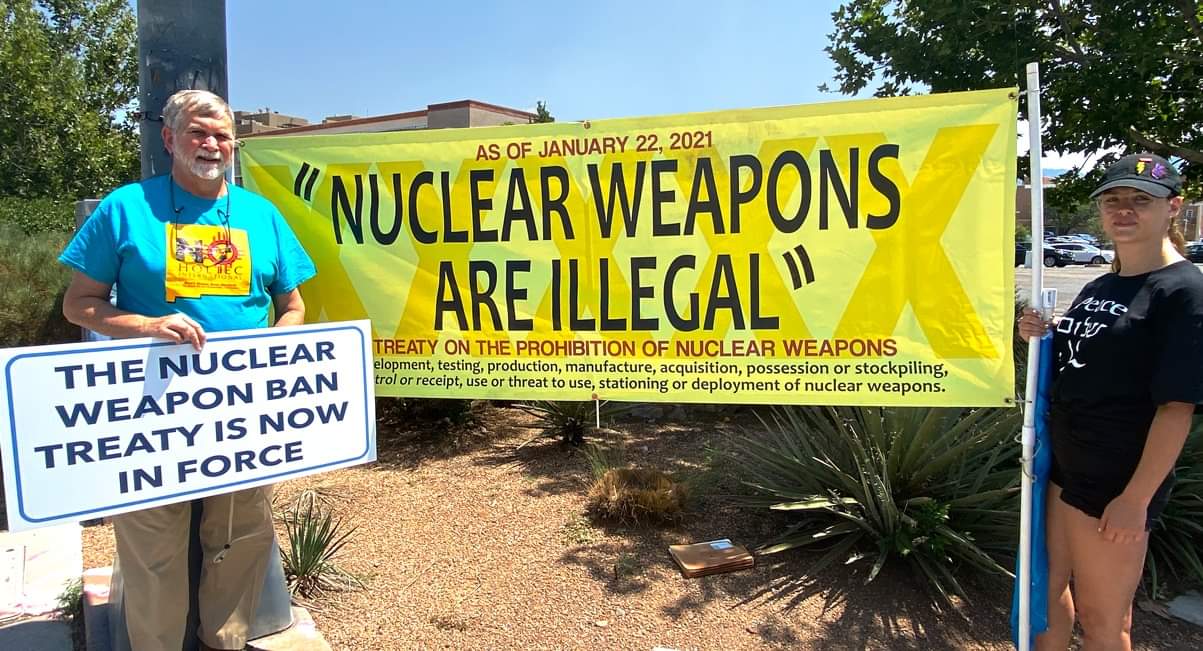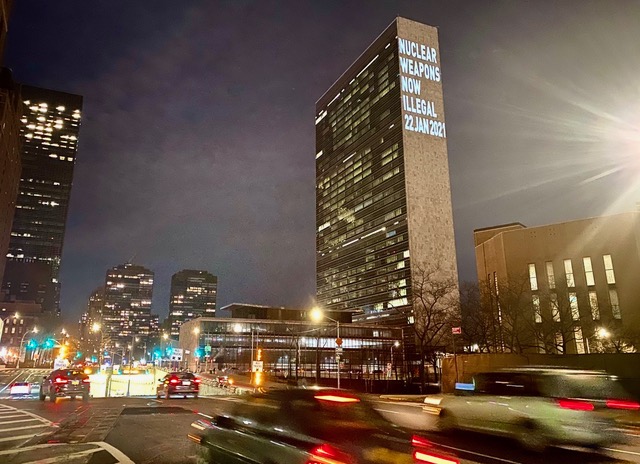Nuclear Weapons
It is such a supreme folly to believe that nuclear weapons are deadly only if they’re used. The fact that they exist at all, their presence in our lives, will wreak more havoc than we can begin to fathom. Nuclear weapons pervade our thinking. Control our behavior. Administer our societies. Inform our dreams. They bury themselves like meat hooks deep in the base of our brains. They are purveyors of madness. – Arundhathi Roy
Nuclear Weapons are Costly
Latest Weapons News from our Members
Article highlights Tri-Valley CAREs’ concerns about Lab canceling public engagement efforts – Join our 1/15 meeting for more!
In a January 7th article, Livermore Vine reporter Jude Strzemp discussed the National Security Administration’s decision to retract its intention to publish a Draft Supplemental Environmental Impact Statement (SEIS) for public comment for “Enhanced Plutonium...
Livermore Lab Uses Trump Executive Order Gutting Environmental Laws to Push Through Enhanced Plutonium Utilization without Publi…
News from our friends at Tri-Valley CAREs | Dec 19, 2025 trivalleycares.orgFirst announced In January 2025, the NNSA proposal for “Enhanced Plutonium Facility Utilization” at the Livermore Lab was to include a “Draft Supplemental Environmental Impact Statement”...
Time Zero: 05: The Lab (Part 01)
https://964f6bfd-c857-4667-8d59-615efbd0d7c4.libsyn.com/05-the-lab-part-01 ”When the Manhattan Project arrived on the Pajarito Plateau in northern New Mexico, the land was not uninhabited. To establish the highly secretive Site Y, the United States military forcibly...
A House of Dynamite review – Kathryn Bigelow’s nuclear endgame thriller is a terrifying, white-knuckle comeback
By Peter Bradshaw, The Guardian | September 2, 2025 theguardian.comKathryn Bigelow has reopened the subject that we all tacitly agree not to discuss or imagine, in the movies or anywhere else: the subject of an actual nuclear strike. It’s the subject which tests...
Warren, Garamendi Press Energy Secretary on Mismanagement and Taxpayer Waste in Plutonium Pit Production Program
Text of Letter (PDF) Sen. Elizabeth Warren and Rep. John Garamendi | Dec 16, 2025 warren.senate.gov – garamendi.house.govWashington, D.C. — In a new letter, U.S. Senator Elizabeth Warren (D-Mass.) and Representative John Garamendi (D-Calif.), both members of their...
NEW INTERACTIVE PIECE from USA TODAY: THE NUCLEAR SPONGE — & Much More!
Screenshot from USA Today article January 5, 2026 usatoday.com/graphics/interactives/us-nuclear-weapons-expansion-fallout-map/ By Davis Winkie, Ramon Padilla, Stephen Beard, Karina Zaiets and Carlie Procell, USA TODAY | Jan 5, 2026 usatoday.comU.S. nuclear strategy...
Hanford contractors make progress on infrastructure projects
Tri-Cities Business Journal(Feed generated with FetchRSS)
Nuclear Expert Speaker Reveals a Deeper Look at Hanford’s Story
Newstalk 870(Feed generated with FetchRSS)
Feds get more time to decide whether to ship liquid radioactive waste from WA
Tri-City Herald(Feed generated with FetchRSS)
Hanford Site cleanup progress in Richland, community meeting Jan. 13
NBC Right Now(Feed generated with FetchRSS)
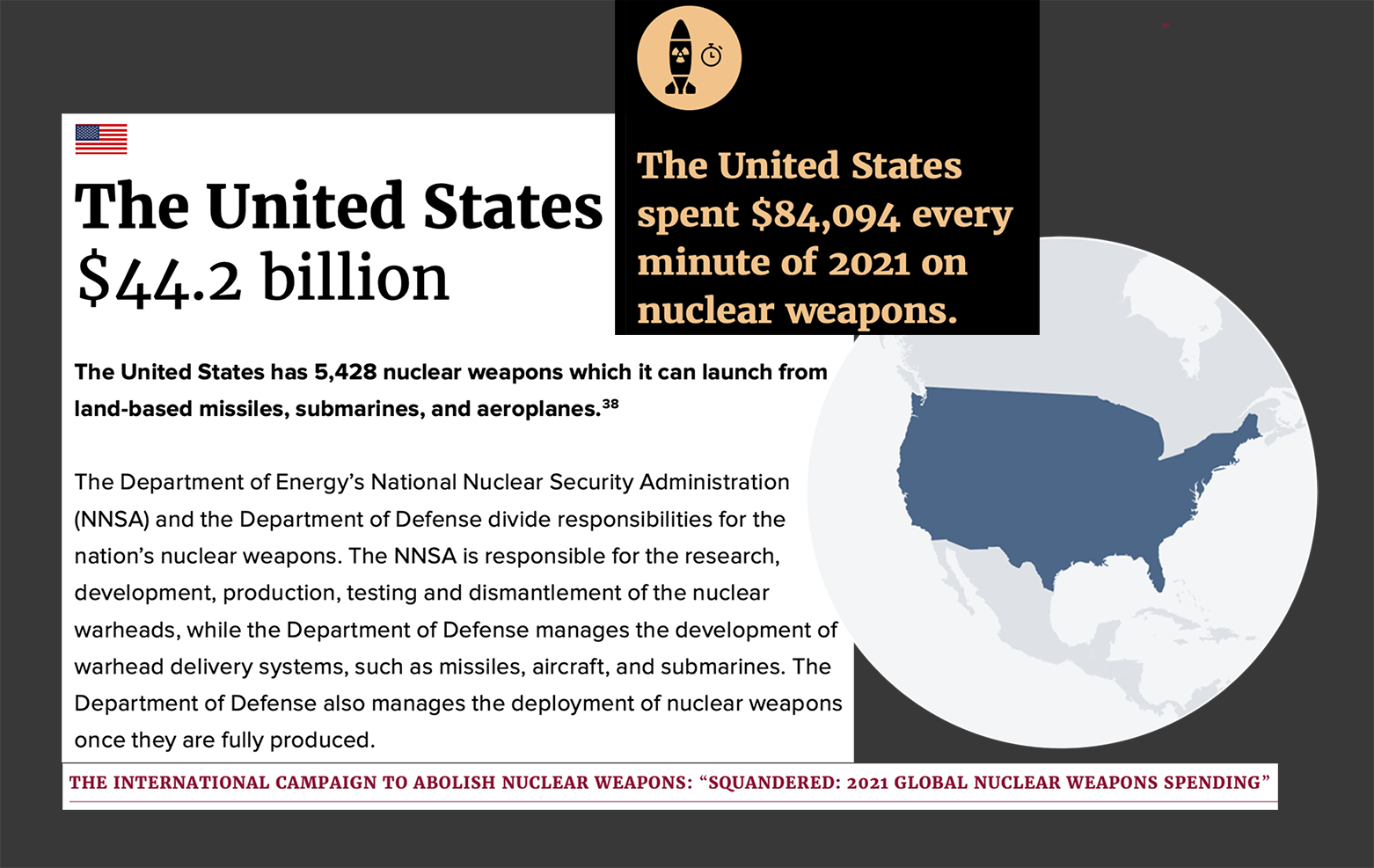
The U.S. is on track to spend between $620 billion and $661 billion on nuclear weapons and related programs over the next decade. Escalating costs associated with so-called “modernization” plans are forcing Congress to divert funds from essential programs like education, health-care, and job training to invest in a force that is bloated and dangerous. These expensive plans are plagued with cost overruns and are ridiculed by watchdog groups for their poor management.
As we negotiate bilateral and multilateral treaties to reduce the nuclear threat, the U.S. can not send the wrong message by spending unprecedented amounts on our nuclear arsenal. With the situation worsened by the Russian invasion of Ukraine in 2022, it is no longer apparent that the U.S. views disarmament as a priority. We continue to create distrust with escalating spending on the nuclear arsenal. Urge Congress to reduce spending on unwise Life Extension Programs and invest in our economic competitiveness.
Learn more about Life Extension Programs here
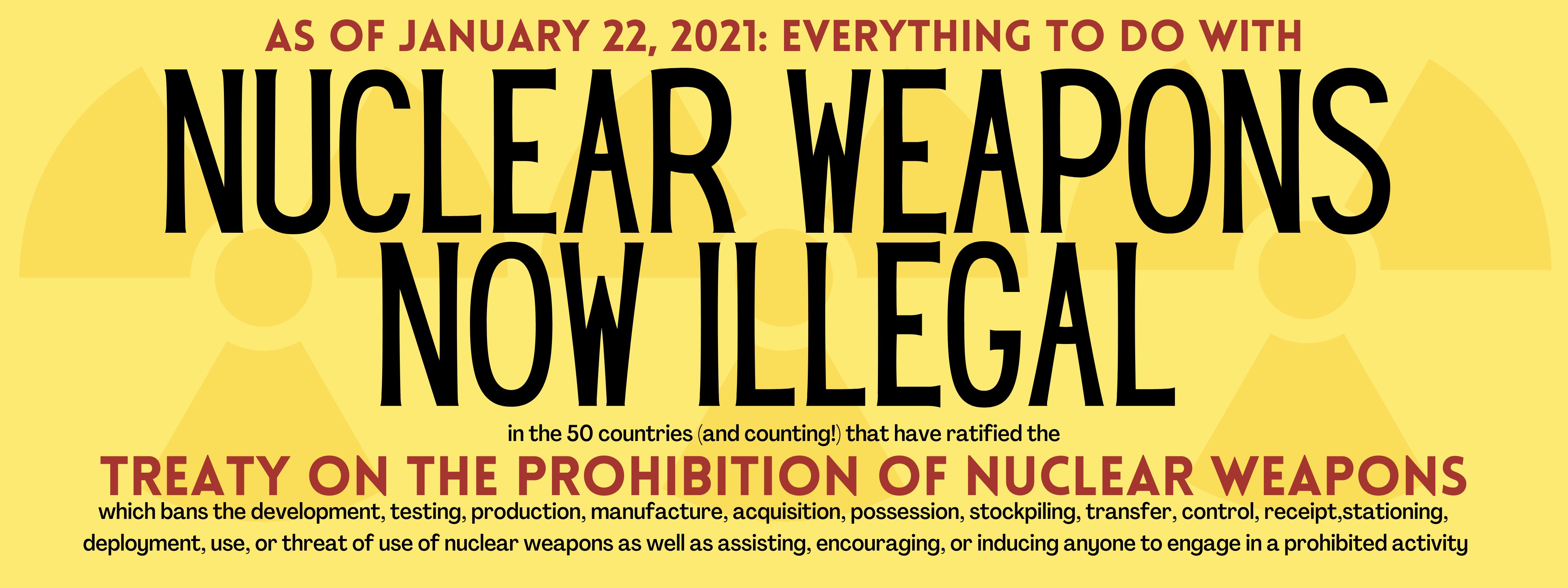
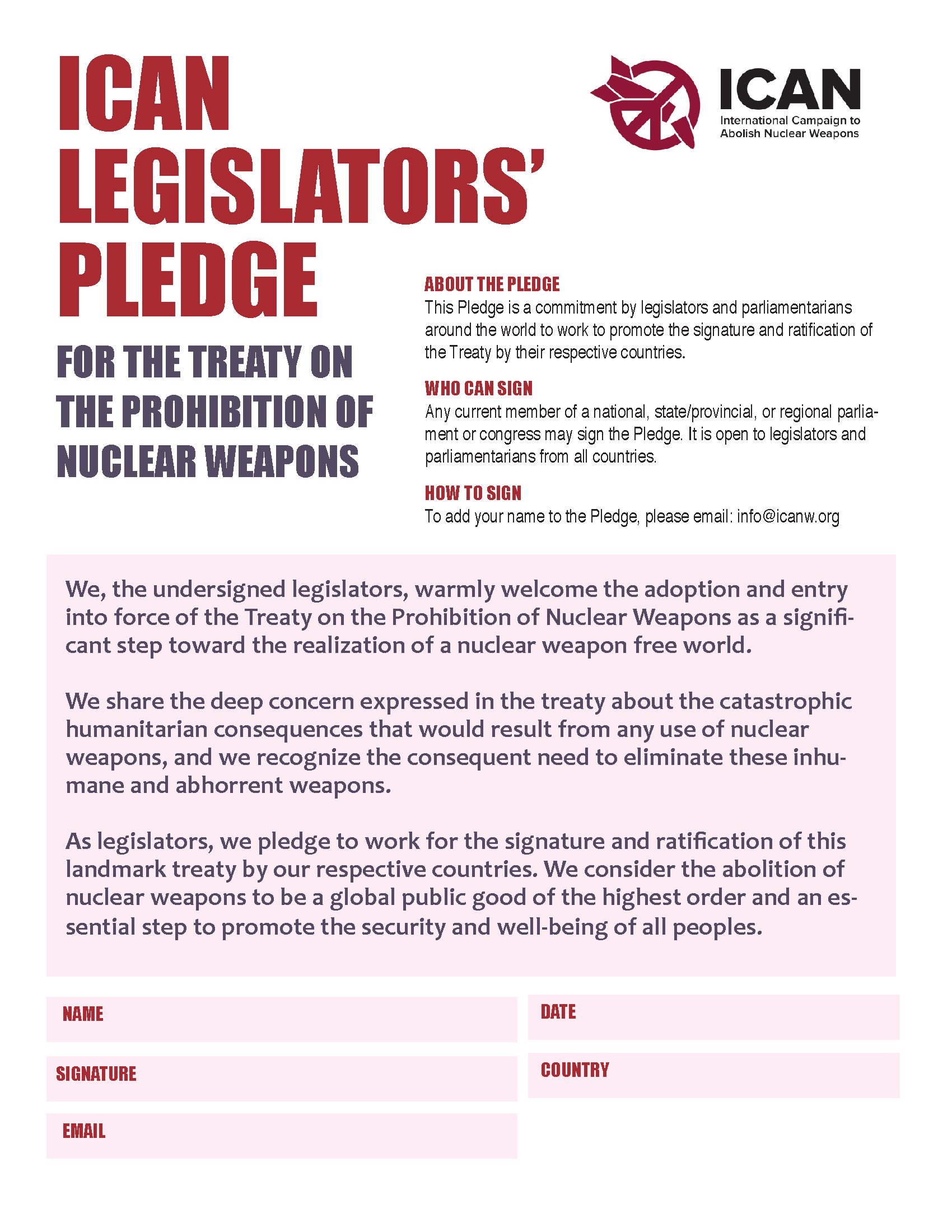 Nuclear Ban Treaty: Resources & More Info
Nuclear Ban Treaty: Resources & More Info
THE U.N. TREATY ON THE PROHIBITION OF NUCLEAR WEAPONS
On 7 July 2017 – following a decade of advocacy by ICAN and its partners – an overwhelming majority of the world’s nations adopted a landmark global agreement to ban nuclear weapons, known officially as the Treaty on the Prohibition of Nuclear Weapons. It entered into legal force on January 22nd of this year, 2021, when the first 50 nations signed and ratified it.
Prior to the treaty’s adoption, nuclear weapons were the only weapons of mass destruction not subject to a comprehensive ban, despite their catastrophic, widespread and persistent humanitarian and environmental consequences. The new agreement fills a significant gap in international law.
It prohibits nations from developing, testing, producing, manufacturing, transferring, possessing, stockpiling, using or threatening to use nuclear weapons, or allowing nuclear weapons to be stationed on their territory. It also prohibits them from assisting, encouraging or inducing anyone to engage in any of these activities.
International Arms Control Cooperation is Building
Over the past century, world governments have increasingly looked to create laws that govern the conduct of nations in war. The institutions that work to verify these international agreements have become robust and the rules enabling their ability to provide verifiable oversight have also been strengthened. Today, the international community has over 330 international monitoring stations that provide rapid data if any country attempts to test nuclear weapons (a step in developing a nuclear weapons program). Any international agreement that would move us closer to abolition would also include robust on-the-ground inspections using lessons learned from the process the U.S. and Russia have developed over years of nuclear arms control cooperation. The alternative to serious nuclear disarmament efforts is the status-quo where countries will continue to develop nuclear weapons programs over time and we will increasingly face a world that teeters on the brink of nuclear war.
Nuclear Weapons Humanitarian Consequences are Catastrophic
Nuclear weapons are unique in their destructive power and the threat they pose to the environment and human survival. They release vast amounts of energy in the form of blast, heat and radiation. No adequate humanitarian response is possible. In to the nuclear winter scenario that many are familiar with, Physicians for Social Responsibility (PSR) studied how a regional nuclear war involving around 100 Hiroshima-sized weapons would disrupt the global climate and agricultural production so severely that more than a billion people would be at risk of famine.
In an International Physicians for the Prevention of Nuclear War report, Zero is the Only Option, experts from PSR and around the world analyzed several scenarios concerning the use of nuclear weapons. From a medical perspective, the aftermath of a nuclear attack makes any effective medical responsible infeasible. The resulting conclusions describe a level of catastrophic harm that must compel all to act to abolish these weapons.
Learn more about the humanitarian consequences of nuclear weapons at PSR and at the International Campaign to Abolish Nuclear Weapons.


